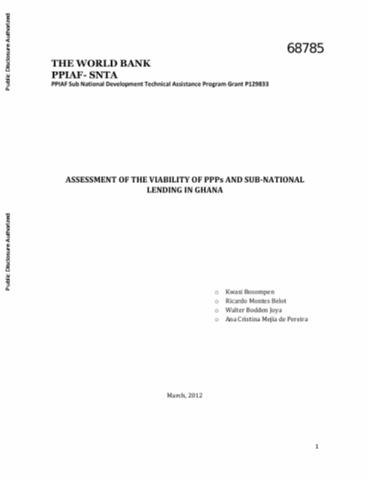An Opportunity for a Different Peru : Prosperous, Equitable, and Governable
This book argues that Peru faces an
unprecedented opportunity to become the next success story
in Latin America. In the coming five years, policy making
could put the country on a development path similar to the
one that, say, Chile, Costa Rica, or Spain have followed
over the last two decades. This book includes 32
sector-specific chapters and 2 historical perspectives that
precede them. The beginning chapter, a synthesis, builds a




